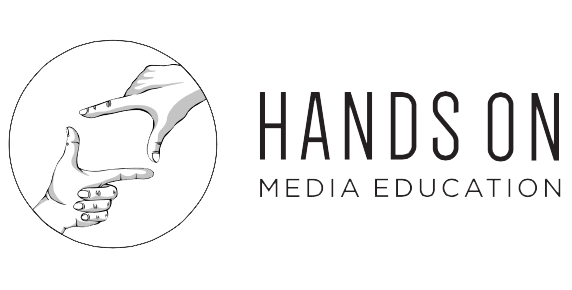Developing Digital Competency through Digital Storytelling
Graphic representation by Jennie Vandermeer
In this age of ever-increasing digital communication, creation, and connection, it is more critical than ever that we teach our youth the importance of safe, responsible, and creative digital habits and skills to ensure their success in the 21st century.
As we know, Québec’s Ministry of Education has recently introduced the Digital Competency Framework for both students and teachers to support the development of these skills in our school system. LEARN has created a webpage to help guide teachers new to the Digital Action Plan for Education. As critical as these twelve competencies are, I regularly hear from teachers that they need help in implementing these new objectives, both as educators, and in their classrooms. Effective and easy-to-follow professional development training and resources are required – which is why I started Hands On Media Education.
For the past fifteen years, I have worked with hundreds of teachers in Quebec, Ontario, British Columbia, and the Northwest Territories, delivering Digital Storytelling workshops as a powerful hands-on Digital Literacy activity for students of all ages.
The format of a Digital Story is a personal or team-based digital media project, using a combination of voice, still images, music, and text to tell a point of view, opinion, life story, or message. Once a project is complete, students and educators are encouraged to share their project online, whether that be on their school website, a private Youtube channel, their teachers’ Facebook group, or their own personal social media platform.
Our Digital Storytelling activity helps foster critical skills around each of the Quebec Digital Competency Dimensions, as listed below:
Considered by many to be an introductory documentary video project, the advantage of beginning with a Digital Story lies in the simplicity of the required technology. With a simple phone or iPad camera, and with free or inexpensive editing software (iMovie for iPhone or iPad and Filmora for PC), the technical difficulties and obstacles for teachers and students alike are low which allow for a greater emphasis placed on the reflection, story, and message.
Sharing our perspectives, opinions, and ideas with the world through screenings and online (maybe on your school website!) can also be very empowering experiences, which can lead to greater confidence, knowledge, and skill development for each student.
Creating Digital Stories in a safe and encouraging environment is an empowering form of creative expression that allows creators to practice traditional literacy activities through storytelling. See an example from NWT Grade 10 teacher Gene Jenks here.
After meeting thousands of teachers across Quebec and Canada, I know how hard it can be to teach Digital Literacy for the first time. A lack of confidence, training or basic technology can hold educators back from embarking on their first Digital Literacy activity. Educators can sometimes embrace their non-expertise and model to students how to approach a project when you aren’t familiar or adept with the technology involved. Other times, a learning community or a workshop can make the learning curve less steep.
I also deliver Digital Storytelling workshops to many Indigenous communities, involving the youth, adults, and elders. Topics for their projects include: a typical day in their life, dreams for what they wanted to do when they great up, advice they have for other youth, and what makes them proud to be Indigenous. See an example from NWT youth Jaryd McDonald here.
Between vlogs, social media, livestreaming, and other digital media platforms becoming increasingly popular among the younger generations, there is an appetite among students to become creative producers of media content that speaks to their experiences and their worldview. Educators have an opportunity to help them develop their voice.
If you would like to learn more about integrating digital storytelling into your classroom and community, join Hands on Media Education and LEARN for “Digital Storytelling in the Classroom: A Webinar for Québec Teachers” on Wednesday, February 19th from 3:30-4:30 PM.
To register, simply complete this short form, or contact us today and we would be happy to help answer any of your questions.




